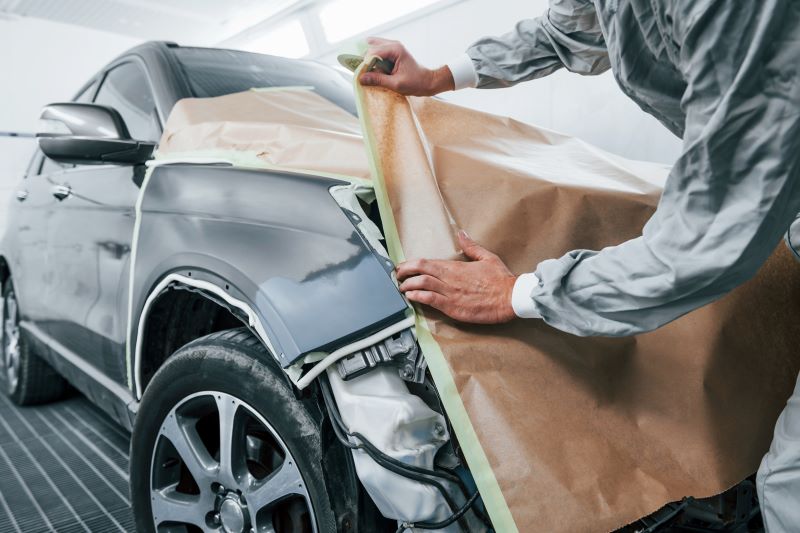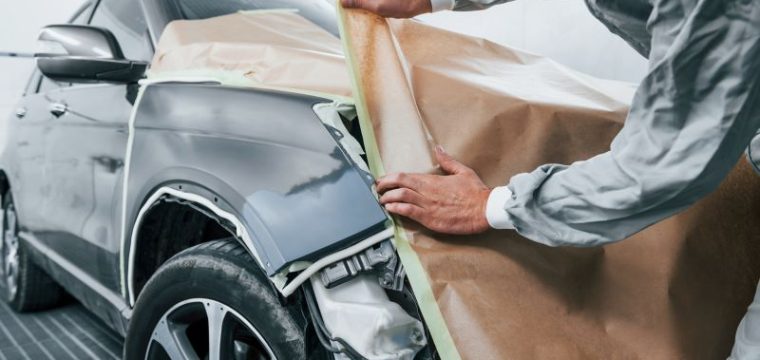Auto body shops are often seen as spaces solely dedicated to repairing vehicles, yet their potential impact on primary care clinic services remains underexplored. By considering the intersections between these seemingly disparate industries, new avenues for enhancing patient care post-accident may emerge. The collaboration between auto body shops and primary care clinics could hold the key to streamlining healthcare delivery processes and improving patient outcomes. Stay tuned to discover how this innovative partnership could revolutionize the way we approach post-accident healthcare services.
Key Takeaways
- Auto body shops can serve as initial points of contact for accident victims seeking medical care.
- Collaborations between auto body shops and clinics enhance healthcare delivery efficiency.
- Resource sharing between auto body shops and clinics improves patient care quality.
- Access barriers post-accident can be addressed through integrated services between shops and clinics.
- Joint efforts improve access to timely preventive and post-accident healthcare services.
The Role of Car Body Shop
Auto body shops play a critical role in the maintenance and repair of vehicles, serving as essential establishments in the automotive industry. These shops are known for their repair expertise, with skilled technicians proficient in diagnosing and fixing a wide range of vehicle issues. The repair expertise of auto body shops ensures that vehicles are restored to optimal condition, guaranteeing safety and performance on the road.
In addition to repair expertise, customer service is another key aspect of auto body shops. Providing excellent customer service is essential for building trust and loyalty with vehicle owners. From the initial assessment of the damage to the final delivery of the repaired vehicle, auto body shops that prioritize customer service strive to ensure a positive experience for their clients. Clear communication, transparency in pricing, and timely updates on the repair progress are all part of delivering exceptional customer service in the auto body repair industry.
Community Health Implications
The impact of auto body shops on community health encompasses various aspects that warrant examination and evaluation to understand their implications on primary care clinic services. Auto body shops can significantly affect public health through the release of harmful chemicals into the environment. The chemicals used in painting, rustproofing, and other maintenance tasks can contribute to air and water pollution, posing risks to both the environment and human health. Studies have shown that exposure to these environmental factors can lead to respiratory issues, skin problems, and other health concerns among individuals residing in the vicinity of auto body shops.
Furthermore, the presence of auto body shops in communities may also impact the overall quality of life and well-being of residents. Noise pollution from heavy machinery and increased traffic congestion can disrupt the peace and tranquility of neighborhoods, potentially leading to stress-related health issues. Understanding these public health implications is crucial for primary care clinics to tailor their services to address the specific needs of individuals affected by the environmental factors associated with auto body shops.
Economic Impact on Healthcare
The economic ramifications of auto body shops on healthcare services present a complex interplay that necessitates a detailed examination of cost implications and resource allocation within the healthcare system. Cost analysis reveals that an increase in auto accidents can strain healthcare resources, leading to higher costs associated with treating accident-related injuries. The demand for medical services, such as emergency room visits, surgeries, and rehabilitation, may escalate, impacting the overall healthcare expenditure. Insurance coverage plays a crucial role in mitigating these costs, as individuals with comprehensive insurance plans are more likely to seek timely medical assistance, reducing the burden on public healthcare systems. However, disparities in insurance coverage across different demographic groups can result in unequal access to healthcare services following auto accidents. Understanding the economic impact of auto body shops on healthcare underscores the importance of proactive measures to manage costs effectively and ensure equitable access to care for all individuals affected by auto-related injuries.

Access to Care Challenges
Given the intricate relationship between auto accidents and healthcare services, an examination of access to care challenges reveals significant barriers faced by individuals seeking medical assistance following such incidents. These challenges are crucial in understanding the impact of auto body shops on primary care clinic services.
- Transportation Barriers: Accessing healthcare services post-accident can be hindered by transportation challenges, especially for individuals with limited mobility or those living in remote areas.
- Healthcare Disparities: Disparities in healthcare access following auto accidents can exacerbate existing inequalities, affecting vulnerable populations disproportionately.
- Insurance Coverage: The complexity of insurance policies and claims processes can create barriers to receiving timely and adequate medical care, impacting the overall health outcomes of individuals involved in auto accidents.
Addressing these access to care challenges is essential in improving the post-accident healthcare experience and ensuring timely access to preventive services that can mitigate long-term health consequences.
Collaborative Opportunities
An analysis of potential collaborative opportunities between Car Body Shop and primary care clinics reveals promising avenues for enhancing post-accident healthcare delivery. Partnership potential between these sectors can lead to streamlined processes and improved patient outcomes. By establishing partnerships, auto body shops can serve as an initial point of contact for accident victims, facilitating referrals to primary care clinics for comprehensive medical assessments and treatments. Resource sharing, such as sharing information on accident dynamics and injuries, can enhance the quality of care provided by primary care clinics, leading to better-informed treatment plans.
Cross-sector collaborations between auto body shops and primary care clinics can result in service integration, where healthcare services are seamlessly woven into the post-accident process. This integration can improve access to care for accident victims, ensuring timely and coordinated medical attention. By working together, auto body shops and primary care clinics can create a holistic approach to post-accident care, addressing both the physical and psychological impacts of accidents. Through collaborative efforts, these sectors can enhance efficiency, effectiveness, and patient satisfaction in post-accident healthcare delivery.
Conclusion
In conclusion, the collaboration between auto body shops and primary care clinics presents a unique opportunity to improve access to healthcare services for accident victims. By leveraging the resources and expertise of both industries, patient care can be more efficiently and effectively delivered. This partnership symbolizes the potential for innovative solutions to complex healthcare challenges, highlighting the importance of interdisciplinary collaboration in addressing community health needs.
